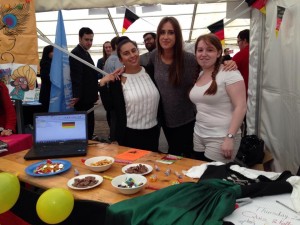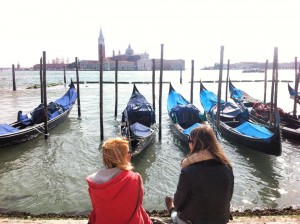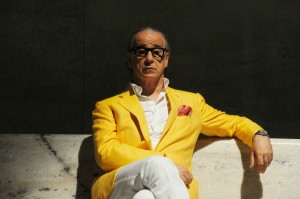We are saddened to learn of the passing of Walter Redfern, Emeritus Professor of French Studies at the University of Reading. We publish below an obituary of Professor Redfern written by his friend Jim Knowlson, OBE, Emeritus Professor of French, The University of Reading.
WALTER REDFERN (1936-2014)
 Walter Redfern, Emeritus Professor of French Studies at the University of Reading, died on 10 October 2014. His wife Angela (whom he married in 1963), their daughter Kate and son Sam were with him in the Royal Berkshire Hospital at the time of his death. In October 2000, while he and Angela were on holiday in the USA, Walter underwent quadruple heart surgery in Saint Thomas’s Hospital in Nashville in Tennessee’s leading cardiac unit and, although fitted with a defibrillator at the time, he had suffered more recent heart problems.
Walter Redfern, Emeritus Professor of French Studies at the University of Reading, died on 10 October 2014. His wife Angela (whom he married in 1963), their daughter Kate and son Sam were with him in the Royal Berkshire Hospital at the time of his death. In October 2000, while he and Angela were on holiday in the USA, Walter underwent quadruple heart surgery in Saint Thomas’s Hospital in Nashville in Tennessee’s leading cardiac unit and, although fitted with a defibrillator at the time, he had suffered more recent heart problems.
Walter was born in Bootle, Liverpool on February 22 1936 and attended Bootle Grammar School. In 1954, he went as a Scholar to St John’s College, Cambridge, where he read French and Spanish and obtained a double first in 1957. He then went on to the École Normale Supérieure in Paris for a year. In 1960, he submitted his Ph. D. thesis on the work of Jean Giono, on whom he wrote extensively and sensitively. In the same year, he was appointed Assistant Lecturer in French Studies in the University of Reading by George Lehmann, and later became Lecturer, then Reader; he was promoted to a Personal Chair in 1980. He became Visiting Professor at the University of Illinois at Champaign-Urbana in 1981-82. Having retired from teaching in 2001, he continued to write prolifically until his death.
He was a keen sportsman. A devoted fan of Liverpool Football Club, he continued to support the team all his life. Indeed, the mourners at his funeral were invited by his family to wear something red in honour of the Kop. The request by the British Heart Foundation for supporters also to wear red for their cause, combined with Walter’s own experience of cardiac problems over the past 15 years, lent this a wider resonance that he would have relished. Donations from mourners were to benefit the British Heart Foundation.
As an active participant in sport for many years, he played cricket with Reading University’s Academic Staff club, making 240 appearances between 1964 and 1981. Originally a fast bowler − although he scarcely bowled at all in his last few years of playing − he took over 100 wickets and scored many useful runs, often in swashbuckling style; he was captain in 1966. He was also a jazz fan and retained a keen interest in film, good food and fine wine.
Walter had a highly developed sense of humour and possessed an exciting, witty, even scintillating literary style. Looking back over his scholarly career, most of our colleagues will be amazed at how extensive his writing was on a wide variety of French authors. Reading and research were for him a continual voyage of discovery and writing about literature was a great joy, witness his many books: on Giono, The Private World of Jean Giono (1967);Nizan,Paul Nizan : Committed Literature in a Conspiratorial World (1972);Raymond Queneau, Queneau : ‘Zazie dans le Métro’ (1980); Darien, Georges Darien : Robbery and Private Enterprise (1985); Vallès, Feet First: Jules Vallès (1992); Tournier, Michel Tournier: ‘Le Coq de bruyère’ (1996);a Jean-Paul Sartre edition,Sartre : ‘Huis clos’ and ‘Les Séquestrés d’Altona’ (1996);Guilloux,Louis Guilloux : Ear-Witness (1998); and Brisset, All Puns Intended : The Verbal Creation of Jean-Pierre Brisset (2001). 30 chapters in other books, 50 articles in a wide variety of French, English and American journals, and almost 200 reviews in the Times Literary Supplement and The Times Higher Educational Supplement, French Studies, The Modern Language Review, The Journal of European Studies (to mention only his main outlets) add up to a superb record of loving, dedicated scholarship. But, alongside his remarkable studies of French literature, it is with his books on laughter, clichés and puns that he built up a fine international reputation. His Puns book (Blackwells, 1984 with an enlarged edition published by Penguin in 2000) established his initial reputation in this area, which was then reinforced by his book on Clichés and Coinages (Blackwells, 1989) and later, since his retirement, by a brilliant collection of essays on humour, French Laughter: Literary Humour from Diderot to Tournier (Oxford, Oxford University Press, 2008). His astute study of Diderot seemed to me, as a former lecturer on eighteenth century literature and thought, to capture the essence of this great innovative thinker’s wit and sparkle and, more recently as a Beckett scholar, I shall never forget a stunning analysis of ‘Beckett and Bad Jokes’ in the same book. He never separated his creative writing from his academic work and wrote dozens of poems, some published in Granta and Poetry Voice, as well as a number of short stories all his life. His novel, A Calm Estate appeared in 1987.
One can only envy the natural ease with which ‘Woll’ (as he was widely known among his friends) managed to express himself in his writing. In fact, he was far more at ease with his pen than he was in social groups, where he often appeared shy and retiring, preferring the company of a few close friends. He was never one to seize the limelight either and was never guilty of self–promotion or self-aggrandisement. He simply got on quietly, unobtrusively, devotedly with his own work, dealing promptly and efficiently with matters to hand.
With over twenty books to his credit, Walter’s quantity of writing was substantial by any standards. Yet it is, above all, the quality of his thinking and his writing, his great wit and his gift for fluent self-expression that strike the reader. His wit is sometimes (indeed often) subtle; yet, at times, it is applied with deliberately broad brush strokes. And although this is, I recognise, highly unusual in an obituary, I should like to end with a short, racy but scintillating paragraph taken from the preface to his book entitled ‘Promises, Promises’ on French Laughter from Diderot to Tournier where he writes so brilliantly about what humour is and is not. It is totally characteristic of Walter’s keen intelligence and verbal brio:
‘When I first disembarked in the USA, I saw a van bearing the legend ‘Snap-On Tools’. I reflected: for those of us males with hang-ups, or let-downs, about sexual dysfunction, the get-up-and-go Yankees have thought of everything, including stand-in peckers (more firmly attached than dildos). Humour, however, is not a snap-on tool. It is the organ itself, with all its faults and failures (I could not tastefully call it ‘warts and all’). The laws of levity are made to be broken, or at least elasticized. Humour sometimes uses the barge pole, to distance the target, sometimes the shepherd’s crook, to corral all of us in the same flock, to dunk all of us in the communal sheep-dip.’
As a scholar, Walter Redfern, like his beloved Liverpool F. C., merited the elevated position that he occupied in the Premier League. But, as a man and a friend, he will be sorely missed.
 If you’re studying German, like I do, or are German, then the German Society is the club for you. If you speak German or would like to, this is the club for you. If you like beer, schnapps, Lederhosen, Schlager Musik or all manner of things Germanic; THIS IS THE CLUB FOR YOU!
If you’re studying German, like I do, or are German, then the German Society is the club for you. If you speak German or would like to, this is the club for you. If you like beer, schnapps, Lederhosen, Schlager Musik or all manner of things Germanic; THIS IS THE CLUB FOR YOU! and chose to study it in the first place. I would therefore advise you to make the most of your University life. Time will go by so quickly and before you know it you will be graduating. Join societies, meet lots of people, join the gym and actively participate in volunteering.
and chose to study it in the first place. I would therefore advise you to make the most of your University life. Time will go by so quickly and before you know it you will be graduating. Join societies, meet lots of people, join the gym and actively participate in volunteering.
















